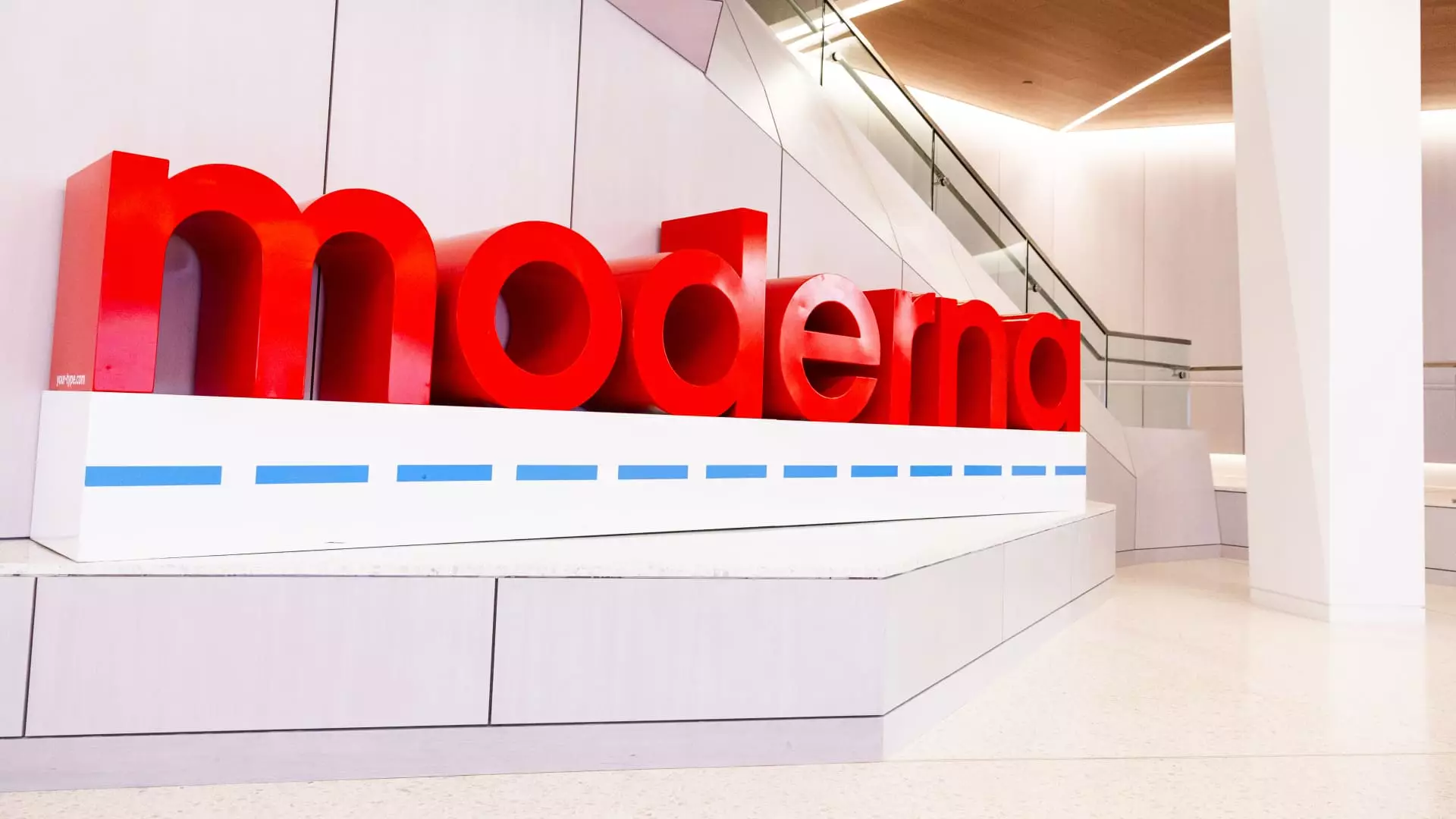Moderna, a prominent player in the biotechnology sector, has found itself in a complex financial landscape as the demand for its Covid-19 vaccine wanes and it adapts to a radically changed market environment. In its most recent financial report, the company revealed a fourth-quarter loss that was larger than analysts had anticipated, revealing both the ongoing struggles of the firm and its attempts to pivot toward future profitability.
In a stark contrast to the previous year when it boasted significant profits, Moderna reported a net loss of $1.12 billion, or $2.91 per share, for the fourth quarter of 2024. This marked a troubling decline from the net income of $217 million, or 55 cents per share, it posted during the same period the previous year. The loss can be attributed not only to dwindling demand for its flagship Covid vaccine but also to a substantial non-cash charge of approximately $238 million related to the termination of a contract manufacturing agreement.
Despite this grim outlook, Moderna did manage to beat revenue estimates, reporting $966 million for the quarter compared to expectations of $942.8 million. However, it’s essential to note that this figure is less than half of the $2.8 billion in sales recorded during the corresponding quarter last year, emphasizing the sharp decline in its primary business segment.
In light of the ongoing downturn, Moderna’s management is actively pursuing cost-reduction strategies. CFO Jamey Mock indicated that the company successfully cut costs by 27% in 2024 compared to the previous year. The goal is to achieve an additional $1 billion reduction in costs by the end of 2025, reflecting a notable pivot in the company’s strategy to stabilize its finances.
On the sales front, Moderna has provided guidance for 2025, estimating product sales between $1.5 billion to $2.5 billion. It anticipates that a majority of this revenue will materialize in the latter half of the year, with only $200 million expected in the first half. This cautious outlook stems from seasonal fluctuations in demand for respiratory products, which peak in colder months, alongside rising competition and declining vaccination rates.
Moderna’s shares took a hit following their revised sales guidance earlier in the year, which was cut by roughly $1 billion. The company attributed this downward revision to intensifying competition in the Covid-vaccine market, uncertain vaccination policies, and a general decline in booster uptake.
The decline in Covid-19 vaccine sales is particularly noteworthy. The company reported $923 million from its Covid product, a whopping 66% drop from the prior year. This downturn reflects not only the company’s challenges in maintaining market share but also changes in consumer behavior as the pandemic’s urgency diminishes.
Contributing to this decline is Moderna’s earlier-than-usual launch of its updated Covid vaccine, which shifted expected sales into the previous quarter. Indeed, the FDA’s earlier approval allowed the company to meet a temporary surge in demand effectively, though it ultimately resulted in a less robust quarter than anticipated.
Despite the setbacks in its Covid-19 segment, Moderna is leveraging its mRNA technology and venturing into new product offerings. The recent approval of its Respiratory Syncytial Virus (RSV) vaccine has given the company a much-needed boost, adding $15 million in sales for the fourth quarter. Analysts had projected even lower sales, which indicates a slight upside to Moderna’s new endeavors.
Additionally, the company is banking on a robust pipeline of innovations, with plans for 10 new mRNA product approvals in the coming three years. Key upcoming regulatory submissions include next-generation Covid vaccines and combination shots targeting both Covid and influenza. Moderna’s commitment to innovation will be instrumental as it seeks to diversify its product portfolio and diminish reliance on its Covid-19 vaccine.
Overall, Moderna’s recent financial performance underscores the volatility and complexity inherent in the biotech industry, especially during a period of post-pandemic transition. The rapid growth that characterized the company’s early days has been replaced by a need for meticulous financial management and strategic pivots.
While the challenges ahead are significant, particularly in re-establishing itself in a market now filled with competition, Moderna’s ongoing commitment to innovation and exploration of new markets may well be the keys to its recovery. As it stands, the company’s future success will largely depend on its ability to adapt, overcome, and capitalize on emerging opportunities within the healthcare landscape.

